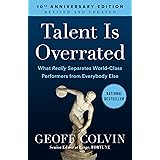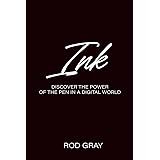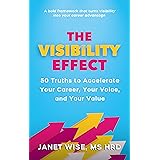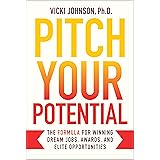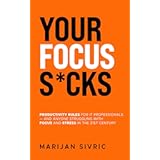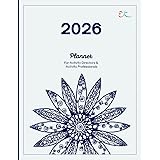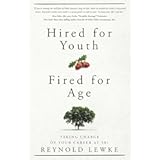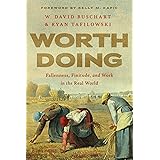Navigating the crucial decision of choosing a **career after Class 12** presents unique challenges. Many students face uncertainty. They often grapple with societal expectations and significant peer pressure. The rapidly evolving industrial landscape makes this choice even more complex. It requires more than just picking a path. Proactive planning becomes essential for success.
The accompanying video offers eight actionable tips. These guidelines are designed to bring clarity and purpose. They empower students to make informed choices. This article expands on those tips. It provides a deeper dive into each step. This will help you build a robust foundation for your future.
1. Cultivating Self-Awareness for Career Clarity
Understanding yourself is the first vital step. Identify your core strengths and genuine interests. Recognize your personal values. These elements form your authentic compass.
Discovering Your Inner Drive
Engage in diverse activities. Hobbies reveal hidden passions. Volunteering exposes you to different environments. Workshops help develop new skills. These experiences provide valuable insights. They clarify what truly resonates with you. Imagine if you volunteer at an animal shelter. You might discover a deep passion for animal welfare. This could lead to a career in veterinary science or zoology.
Consider psychometric assessments. These tools can highlight aptitudes. They also pinpoint personality traits. Such insights ensure decisions align with your inner self. This prevents choices based solely on trends or external pressures. Self-awareness forms the bedrock of thoughtful **career planning**.
2. Exploring Diverse Career Pathways
Early planning opens a world of options. You can thoroughly investigate various **career options**. Do not limit yourself to traditional fields.
Beyond Conventional Choices
Fields like medicine and engineering are popular. However, new and dynamic sectors are emerging. Artificial Intelligence (AI) offers innovative roles. Digital Marketing connects brands with audiences. Data Analytics transforms raw data into insights. Renewable Energy creates sustainable futures. These areas offer exciting, high-growth opportunities.
Seek firsthand experiences. Internships provide practical exposure. Career fairs connect you with professionals. Informational interviews offer unique perspectives. Shadowing professionals shows you a typical workday. This direct interaction helps demystify various roles. It also helps you assess job fit. Explore online courses or short-term certifications. These can provide a foundational understanding of new fields.
3. Setting Achievable Career Goals
Transform your grand aspirations into smaller, manageable objectives. This strategy maintains focus and motivation. It makes the journey less daunting.
The SMART Goal Framework
Employ the SMART goal framework. Goals should be Specific and Measurable. They must be Achievable and Relevant. Finally, they require a Time-bound element. Breaking down a long-term vision into these steps makes it attainable. For example, aspiring to be a software engineer means choosing the correct subjects. It also involves participating in coding competitions. If a creative field beckons, focus on developing writing or design portfolios. Clear, structured goals provide a vital roadmap. They guide your every academic and extracurricular choice. This focused approach is key to effective **student career guidance**.
4. Making Informed Educational Choices
Proactive students choose wisely. They select the right academic stream. They pick appropriate electives and college courses. These choices significantly impact their academic journey.
Strategic Academic Decisions
Research specific educational institutions. Evaluate their faculty and curriculum. Consider their placement records. Look for programs aligned with your chosen **career path**. The video mentions research suggesting such students are more satisfied. They also tend to perform better academically. This satisfaction stems from a deliberate match. It connects their interests with their academic environment. Investigate specialized courses and vocational training programs. These can offer direct pathways to specific industries. Choosing the right educational path is paramount for a successful **career after Class 12**.
5. Prioritizing Skill Development
Early planning allows for comprehensive skill building. Focus on both soft and technical capabilities. These skills are crucial for future professional success.
Building a Competitive Skill Set
Develop essential soft skills. Communication and teamwork are vital. Problem-solving and critical thinking are highly valued. Adaptability is key in dynamic workplaces. Simultaneously, acquire technical skills. These might include coding, data analysis, or digital marketing tools. Gradually building these competencies prepares you. It equips you for future professional challenges. This holistic development boosts your confidence significantly. Online platforms like Coursera or edX offer many courses. Certifications can validate your expertise. This strategic skill acquisition creates a competitive advantage.
6. Enhancing Decision-Making Capabilities
Exploring diverse options sharpens critical thinking. You learn to weigh pros and cons effectively. This leads to more thoughtful and sound decisions.
Analytical Thinking for Life
Analyze potential outcomes. Understand the implications of each choice. This process refines your judgment. It helps you consider all angles. Developing this skill benefits more than just your career. It applies to every aspect of life. Imagine evaluating a new job offer. You would assess salary, benefits, company culture, and growth opportunities. This analytical approach leads to optimal choices. It ensures you make conscious, well-reasoned decisions. This improved decision-making is a lifelong asset.
7. Cultivating Financial Awareness
Understanding financial requirements early is crucial. Higher education or specialized courses involve significant costs. Proactive financial planning alleviates stress.
Smart Financial Planning for Education
Create a detailed budget. Research various scholarship opportunities. Explore government grants and educational loans. Consider part-time work options. Look into cost-effective educational alternatives. These might include community colleges or online degrees. Early financial planning mitigates future stress. It ensures your educational aspirations are sustainable. This foresight is vital for long-term financial stability. It empowers you to pursue your desired **post-12th career** without undue financial burden.
8. Reducing Stress and Building Confidence
A clear roadmap reduces uncertainty and anxiety. It allows you to focus on productive steps. You face challenges with greater confidence.
The Power of a Proactive Mindset
Having a structured plan provides direction. It transforms uncertainty into actionable steps. You develop a proactive mindset. This contrasts with a reactive approach. You learn to anticipate obstacles. You then devise strategies to overcome them. This builds resilience. It fosters a strong sense of self-efficacy. Imagine approaching entrance exams with a detailed study plan. Your anxiety would be significantly lower. Your confidence would be higher. This mindset is indispensable for sustained success. It ensures a fulfilling and successful **career after Class 12**.


